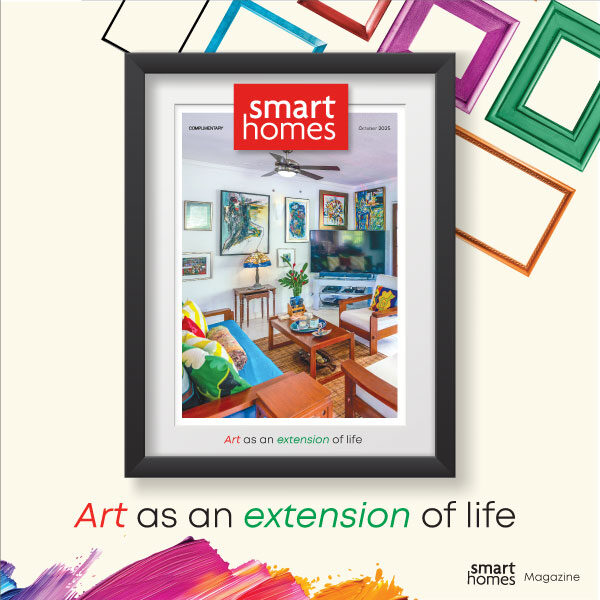by
Nick Nunes
Part 2
Since the development of clusters arising from the Christmas season, and now found in neighbourhoods, more Barbadians have had the test for COVID-19. But what’s it really like? Following on from last month’s feature are two personal accounts of the testing process told by people who wish to remain anonymous.
This perspective on testing comes from an anon, here named ‘John’. An expat living and working in Barbados, John’s first test was easy to organise in the United States. His noted exception came at the cost of the test which was US$135.
“Also, everyone within one hundred miles of my home told me that three days was the fastest that they could get it back for a PCR test, but that five days was more expected. Incidentally, even the facility that said that they could do it had to send all samples to Virginia – around six hundred miles away,” he added.
There were multiple rescheduling problems before he received his test and the ability to actually make the move to Barbados.
For John’s first test in the US, he recalled, “I will say that the actual process of getting the test was fine. I have no problem with implements going into my nose – due possibly to past damage to it – so for me, the swabbing is barely noticeable. There was absolutely no line at the facility. I was the only client there and I was in and out in twenty minutes at most. The facility itself was clean and the staff were very kind.”
On his arrival in the island and after quarantine, he was only made to take one more test. “The actual swabbing and such were identical to in the US, except that I was swabbed outdoors under a tent and at no charge for the test itself,” he elucidated.
“I also waited in line after arrival for a couple of hours. I was in and out fairly quickly once they began administering tests, but only because I arrived around 6:45 or 7:00 in the morning for a 9:00 a.m. opening and was near the front of the line. The line behind me was massive to the point of wonder,” he added.
In these times, long lines can be a cause for concern and the transportation to and from testing sights came at a cost of BDS$200 for John.
On leaving the country and returning, his third ordeal was more complex and logistically inefficient. “On the Barbados side, I arrived at GAIA and presented my test papers, which were accepted. They then sent us all through a line where I got some tracking app on my device and where I got a white tracking band,” he said.
John continued, “The processing inside the airport was fine until I got past Immigration. At that point, it became difficult to know where to go. When I got out of the building, there were people to point out cabs, but I was nervous about how independently travellers were expected to handle things from there out. It was at that point that I began to understand how someone could potentially get confused and end up wandering the streets. Communication was lacking, and the process was rather complicated with the wristbands and such.”
For John, quarantining at the hotel was as expected. Unfortunately, food prep at the hotel was inconsistent.
“Someone under quarantine there could potentially go without food for as much as two days if circumstances went just wrong. And they almost did for me except for a friend who was willing to help and bring food to the hotel staff for me,” he added.
Three days came and went with no word of results. Neither the hotel nor John could get an answer from the authorities.
“After a week, I ended up going to Dos Santos at the hotel’s recommendation, but at a cost of another BDS 200 or so for transportation. This finally worked out, and my bands were removed on site.
At long last, I returned to the hotel, where I paid a hefty sum to settle my bill and check out, but the hotel staff were kind and understanding,” said John.
The tale of the rapid test
This third experience comes from one we’ll call Mary who had to depart the island on short notice. Currently, travel to the UK merely requires a negative rapid COVID-19 test.
According to Mary, “Finding information online was difficult.
Took me a while to find if they were still doing it. Then I found an email address. So, I emailed with the questions and I got a response within the hour. I was told there are no reservations and that I should come early to ensure I get through. The gymnasium is open for testing seven days a week from 9:30 a.m.”
The cost of the rapid test is BDS$100 and results are recorded the same day. Mary arrived at the gymnasium at 8:30 a.m. to two well marked waiting areas, one for those taking the rapid test and the other for PCR.
“My line had about five to six persons in it already. The line was formed to the side of a tent with chairs. Just before 9 a.m., a young lady came and started to ask persons questions. After which she asked them to sit in the tent at socially distanced chairs. When it was my turn, she asked me why I was taking the test. I told her I was traveling and she asked me when. I told her today. She also asked where I was traveling to; I told her the UK,” she illustrated.
Mary continued, “She asked me for my name and asked me to be seated in the tent. After about five minutes, a young man started directing persons to the building asking them to sanitise and social distance. When I got to the building, two individuals were at a table and the young lady asked me my name and asked me to see my ID. She took down my name, ID number, address, where I was flying to and with which airline and when, contact number, and email address. Name, ID, and date were written on masking tape and stuck to a vial. I was asked to review for accuracy. I was then directed to pay for the test. My bank card was taken and processed as they don’t take cash. This was indicated in the email I got before.
“I was given the vial before paying. I was then instructed to stand in a line in front of the testing tent. There are two lines in front this tent, one for PCR and the other for rapid. The staff in the tent were Latinas and all were at least bilingual,” she said.
A chair was well sanitised and Mary directed to sit. The attendant also sanitised herself before Mary approached.
“She asked me to put out my hands for sanitising. She then asked me to take off my mask, sanitised again. She gave me a tissue and asked me to blow my nose, then to discard the tissue and sanitise again.
She gave me a second tissue which I could use after. She takes out the swab and tilted my head back a little and stuck it in my nose. It was not comfortable for me at all.
It seemed to have taken forever but was probably just a few seconds,” she detailed.
“I sanitised again and was directed to wait under another tent for my results.
Everyone so far had been pleasant and very mannerly overall. It was a pretty good experience with little to no inefficiencies noted. Only boo boo is that some persons from the PCR line after testing were also directed to the tent to wait. And a lady waiting was like you shouldn’t be here the band on your hand means you have to go back to the hotel. The boys got up and left. Not sure what was supposed to have happened at all,” she added.
“A guy introduced himself to the group under the tent and said if you hear your name to check your phones in your email spam folder for an email. If you get it then that’s your results. Not sure what persons are to do without a mobile device. Within two hours, a negative test was received and permission to be on the way granted,” she concluded.




